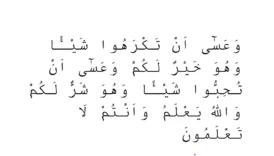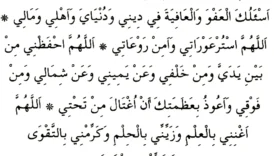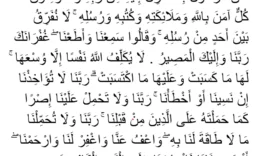The Miraculous Salat al-Tafrijiyah (Salāt al-Nāriya)
Among the various salawat (invocations of blessings) upon the Prophet Muhammad (peace be upon him), Salat al-Tafrijiyah—also referred to as Salat al-Nāriya—holds a special place in Islamic tradition. Believers often turn to this powerful salawat in times of hardship, seeking relief from personal and spiritual challenges, as well as blessings in their everyday lives.
- The Miraculous Salat al-Tafrijiyah (Salāt al-Nāriya)
- 1. Salat al-Tafrijiyah (Salāt al-Nāriya) Text and Meaning
- Arabic Text
- Transliteration
- Approximate Meaning
- 2. The Significance of Salat al-Tafrijiyah
- 3. When and Why Is It Recited?
- 3.1 Times of Hardship, Illness, or Stress
- 3.2 Desire for Good Outcomes and Accepted Prayers
- 3.3 Seeking Blessings and Spiritual Uplift
- 4. Recommended Frequencies for Recitation
- 5. Practical Guidance on How to Recite
- 6. The 4444 Recitation
- 7. Salat al-Tafrijiyah in Daily Life
- 8. Spiritual Benefits (Faḍāʾil)
- 9. Final Thoughts
Below is a detailed overview of Salat al-Tafrijiyah: its text, meaning, occasions for recitation, and its noted spiritual benefits.
1. Salat al-Tafrijiyah (Salāt al-Nāriya) Text and Meaning
Arabic Text
اللّٰهُمَّ صَلِّ صَلَاةً كَامِلَةً وَسَلِّمْ سَلَامًا تَامًّا عَلَى سَيِّدِنَا مُحَمَّدٍ
الَّذِي تَنْحَلُّ بِهِ الْعُقَدُ، وَتَنْفَرِجُ بِهِ الْكُرَبُ،
وَتُقْضَى بِهِ الْحَوَائِجُ، وَتُنَالُ بِهِ الرَّغَائِبُ وَحُسْنُ الْخَوَاتِمِ،
وَيُسْتَسْقَى الْغَمَامُ بِوَجْهِهِ الْكَرِيمِ،
وَعَلَى آلِهِ وَصَحْبِهِ فِي كُلِّ لَمْحَةٍ وَنَفَسٍ
بِعَدَدِ كُلِّ مَعْلُومٍ لَكَ.
Transliteration
“Allāhumma ṣalli ṣalātan kāmilatan wa sallim salāman tāmman ‘alā sayyidinā Muḥammadin
al-ladhī tanḥallu bihi’l-‘uqadu, wa tanfariju bihi’l-kurabu,
wa tuqḍā bihi’l-ḥawāʾiju, wa tunālu bihi’r-raghāʾibu wa ḥusnu’l-khawātimi,
wa yustasqā’l-ghamāmu bi-wajhihi’l-karīmi,
wa ‘alā ālihi wa ṣaḥbihi fī kulli lamḥatin wa nafasin
bi-ʿadadi kulli maʿlūmin lak.”
Approximate Meaning
“O Allah! Send perfect blessings and complete peace upon our master Muḥammad,
by whom knots are untied, difficulties are eased,
needs are fulfilled, aspirations are attained, and one reaches a good conclusion.
By his noble countenance, rain is sought (in times of drought).
May blessings and peace also be upon his family and companions,
with every blink of an eye and every breath,
in a measure known only to You, O Lord.”
2. The Significance of Salat al-Tafrijiyah
- Expression of Love and Reverence:
This salawat is an expression of deep love and respect for the Prophet Muḥammad (peace be upon him). By invoking blessings upon him, believers show gratitude for his guidance and seek nearness to Allah through his intercession. - A “Miraculous” Supplication:
Salat al-Tafrijiyah is often hailed as a miraculous prayer. Many report relief from anxieties, removal of obstacles, and the fulfillment of important wishes after consistently reading this salawat. - Multiple Names & Traditions:
- Also known as Salat al-Nāriya or Salat an-Nāriyah.
- Imām al-Qurṭubī and other scholars emphasize its spiritual potency, citing first-hand accounts and communal experiences over centuries.
3. When and Why Is It Recited?
3.1 Times of Hardship, Illness, or Stress
- People commonly recite Salat al-Tafrijiyah when facing financial problems, health issues, or emotional strain.
- It serves as a means to request Allah’s help in swiftly resolving difficulties.
3.2 Desire for Good Outcomes and Accepted Prayers
- Believers often turn to this salawat to facilitate the acceptance of personal pleas (du‘ā’).
- The invocation calls for ease in all kinds of adversities, highlighting its role as a spiritual catalyst for achieving goals.
3.3 Seeking Blessings and Spiritual Uplift
- Many recite Salat al-Tafrijiyah for overall serenity, blessings (barakah), and a closer connection to Allah.
- It is said to lighten the heart, open doors of opportunity, and bring consistent spiritual growth.
4. Recommended Frequencies for Recitation
Islamic scholars have shared various practices concerning how many times Salat al-Tafrijiyah should be recited, often based on personal experiences or communal traditions:
- 41 or 100 Times Daily
- According to Imām al-Qurṭubī, persisting in reading this salawat daily (41 or 100 times) can alleviate ongoing hardships, elevate one’s spiritual state, and expand one’s provision (rizq).
- 4444 Times for Major Needs
- For very significant matters or to avert major calamities, some recommend reciting Salat al-Tafrijiyah 4,444 times.
- According to accounts in Hazīnet al-Asrār, this larger recitation can be performed either individually or collectively (e.g., family, friends, or a study circle).
- Other Suggested Routines
- 11 Times Daily after each of the five prayers: said to ensure ease of sustenance and reduce difficulties.
- 21 Times Daily: believed to bring abundant provisions, ease in business, and general success in one’s endeavors.
- 100 Times Daily: can grant significant spiritual openings and help fulfill righteous intentions.
- 1000 Times Daily: some scholars mention that the reciter experiences profound spiritual states or insights beyond normal comprehension.
5. Practical Guidance on How to Recite
- Start with Istighfār (Seeking Forgiveness)
- It’s common to begin with “Astaghfirullāh al-ʿAẓīm wa atūbu ilayh” (I seek Allah’s forgiveness and repent to Him) several times—5, 10, or 25 times.
- Recite the Āyah of Salawat
- Read the verse: “Indeed, Allah and His angels send blessings upon the Prophet. O you who believe, send blessings upon him and salute him with [worthy] salutation.”
(Qur’an 33:56)
- Read the verse: “Indeed, Allah and His angels send blessings upon the Prophet. O you who believe, send blessings upon him and salute him with [worthy] salutation.”
- Intention (Niyyah)
- Make a heartfelt intention for whatever you are seeking (resolving a difficulty, a health concern, a wish for livelihood, etc.).
- You can silently express this intention in your heart or verbalize it quietly.
- Begin the Recitation
- Recite Salat al-Tafrijiyah the recommended number of times (e.g., 11, 21, 41, 100, 4444, etc.).
- Those who cannot manage the entire recitation themselves may entrust someone else to read on their behalf. (This is known as “reading by proxy,” where the reward and benefits can still be shared or gifted.)
- Optional Two Rak‘ahs (Units) of Prayer
- Some prefer to perform two rak‘ahs of supererogatory prayer beforehand.
- Follow the recitation with heartfelt du‘ā’, reinforcing that your hope and reliance lie solely in Allah.
6. The 4444 Recitation
- Imām al-Qurṭubī encourages reading Salat al-Tafrijiyah 4,444 times for urgent, significant matters or to ward off grave misfortunes.
- This longer recitation is often done as a communal effort in a mosque or as a family gathering. The intention behind it is pressing necessity—like a life-threatening illness, extreme financial crisis, or large-scale distress.
7. Salat al-Tafrijiyah in Daily Life
- Morning or Evening Times
- Some choose to read it after Fajr (morning) prayer or after midnight (Qiyām al-Layl), believing these times hold special spiritual merit.
- Integration into Personal Zikr
- Because there is no strict time requirement, many incorporate a set number of salawat daily.
- This helps maintain a continuous bond with Allah and His Prophet (peace be upon him).
- Accompanying Good Deeds
- Charitable acts, kindness to others, and remaining steadfast in obligatory worship amplify the benefit of any salawat.
- Islam teaches a holistic approach—du‘ā’, righteous action, and firm belief.
8. Spiritual Benefits (Faḍāʾil)
- Forgiveness of Sins and Accumulation of Good Deeds
- Reciting salawat is widely taught to be a means of erasing sins, increasing blessings, and drawing nearer to Allah.
- Relief from Worldly and Otherworldly Hardships
- Many see improved emotional well-being, clarity of mind, and doors opening for lawful opportunities.
- Illumination of the Heart
- Salat al-Tafrijiyah is thought to bring spiritual light, fostering humility and gratitude.
- Worldly and Eternal Happiness
- Through consistent practice, believers anticipate both immediate and long-term blessings—prosperity and success in this life, and salvation in the Hereafter.
9. Final Thoughts
Salat al-Tafrijiyah stands out as an intensely cherished salawat in the Muslim world, believed to unravel difficulties and fulfill righteous desires. Rooted in the love for the Prophet Muhammad (peace be upon him), it reflects the believer’s devotion and reliance on Allah’s mercy.
- Whether recited 11 times after each prayer or undertaken as a 4,444-time spiritual marathon, the key lies in ikhlāṣ (sincerity) and istiqāmah (consistency).
- Always remember that true relief comes from Allah alone—this salawat is one of many blessed means by which believers seek His help and support.
May your recitation of Salat al-Tafrijiyah bring ease, illuminate your path, and grant you the blessings you seek. Ultimately, our success depends on Allah, the Most Generous, who answers sincere prayers in the ways most fitting for us—both in this world and the next.





